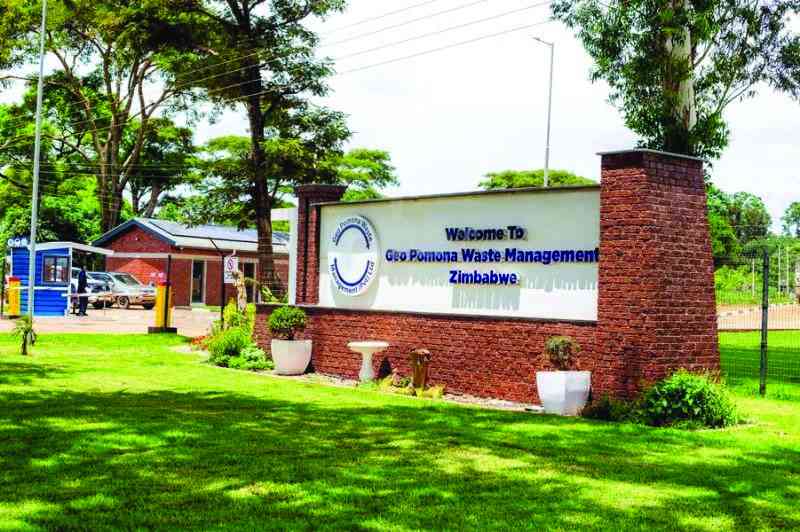
NEDBANK Group Limited CEO Mike Brown will conclude a two-day visit to Zimbabwe today after meeting with clients, workers from its local subsidiary, the Reserve Bank of Zimbabwe and other stakeholders.
The South Africa-based Nedbank Group is one of Africa’s leading financial services firms with assets worth over US$67 billion.
The visit comes as Nedbank Zimbabwe is hedging against hyperinflation and local currency depreciation for its US dollar-denominated open position, resulting in forex profits, but with a net monetary loss.
“Nedbank Group Limited chief executive officer Mike Brown is visiting Zimbabwe from October 9 to 10, 2023. During the two-day visit, GCE Mike Brown will have various engagements with clients and staff of Nedbank Zimbabwe, the Reserve Bank of Zimbabwe, and other key stakeholders,” the banking group said in a statement.
“Nedbank is a purpose-led and values-driven organisation and we are working to achieve our vision of being the most admired financial services provider in Africa by our employees, clients, shareholders, regulators and society. We are focussed on delivering positive societal and environmental impact, aligned with the UN sustainable development goals and supported by good governance and ESG (environmental, social and governance) leadership.”
Nedbank said its leadership in the sustainable finance space continues to be recognised externally with multiple awards.
“Having been operating in Zimbabwe for almost 20 years, Nedbank believes in the great potential of Zimbabwe and Zimbabweans, and we remain committed to work with all Zimbabweans to build a better Zimbabwe,” Nedbank said.
Brown is accompanied by group managing executive for Nedbank Africa, Terence Sibiya, Nedbank group executive head for stakeholder relations Amos Hadebe and Nedbank co-head of international mining finance and investment Nivaash Singh.
- Rampaging inflation hits Old Mutual . . . giant slips to $9 billion loss after tax
- Monetary measures spur exchange rate stability: RBZ
- Zim deploys IMF windfall to horticulture
- Banker demands $21m from land developer
Keep Reading
Nedbank Namibia managing director Martha Murorua and the executive head of marketing and communications for NAR, Maseda Ratshikuni, were included in the visiting team.
In its half year ended June 30, 2023, Nedbank said a weaker Zimbabwe dollar to the South African rand, compared to the greenback, led to a negative other comprehensive income adjustment in reserves.
The group reported that balancing effects prevented hyperinflation and forex swings from affecting Nedbank’s net asset value.
The bank stated that Zimbabwe’s stock investment income, fair-value gains, and foreign exchange profits are volatile and have substantial base effects.
“Net interest income increased by 33% to ZAR1 191 million, driven mainly by higher interest rates, with net interest margin improving to 7,55% from 6,14% in H1 2022. Nnon-interest revenue and income for the Sadc operations increased by 30% to R1 029m, driven largely by unrealised forex gains in Zimbabwe and partially offset by slower-than-anticipated business activity across the regions and a higher bet monetary loss in Zimbabwe of ZAR630 million (H1 2022: ZAR277 million),” Nedbank said.
“If we exclude Zimbabwe, non-interest revenue was up 12%. Our impairment charge increased by 20% to ZAR136 million, driven mainly by the expected credit loss higher model ratings applied to the US dollar loan book in Zimbabwe and the migration of some clients in the small-business portfolio in Eswatini and Lesotho to stage 3.”
Nedbank said its Sadc operations generated headline earnings of ZAR461 million, up by more than 100% year-on-year from ZAR191 million in H1 2022, and delivered a return on equity of 13,5% (H1 2022: 6,1%).
“The improved performance was due to strong growth in revenue in Namibia, Mozambique, and Zimbabwe. This was achieved despite the macroeconomic volatility and uncertainty in Zimbabwe, increased reserve requirements in Mozambique and muted economic growth across the regions,” Nedbank said.
However, the bank predicted its second half year Sadc performance would be lower due to being “impacted by continued volatility in the Zimbabwe dollar, as well as the increased reserving requirements in Mozambique.”







